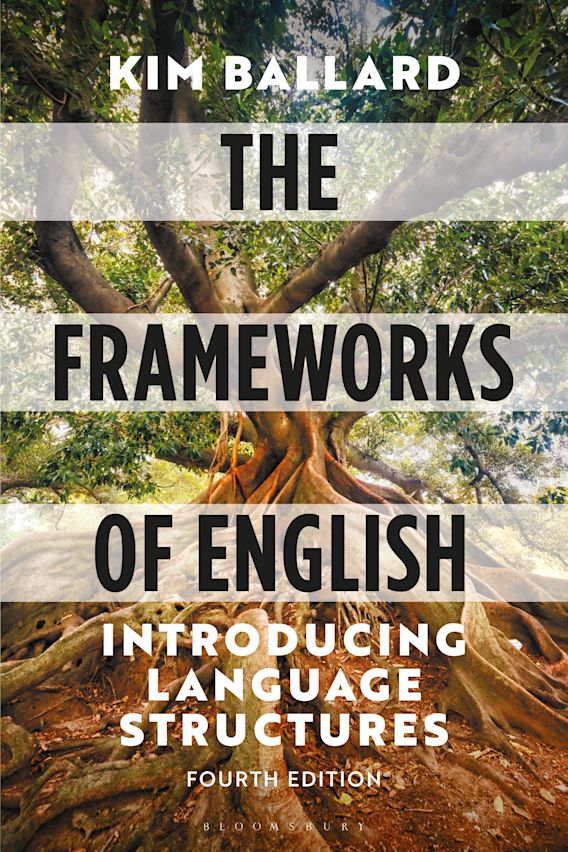


Are you sure you want to reset the form?
Your mail has been sent successfully
Are you sure you want to remove the alert?
Your session is about to expire! You will be signed out in
Do you wish to stay signed in?
Question 1 (Consolidate)
We’ve seen in this chapter (Chapter 2) that many words belong to more than one word class. Identify which classes (major and minor) each of the following word forms belongs to:
well, slow, blast, better, whatever, fast, if, round, rash, will
Answer
| well |
noun, verb, adjective, adverb, interjection |
| slow | verb, adjective, (adverb – although slowly is more standard) |
| blast | noun, verb, interjection |
| better | noun, verb, adjective, adverb |
| whatever | pronoun, determiner, interjection |
| fast | noun, verb, adjective, adverb |
| if | conjunction, noun |
| round | noun, verb, adjective, adverb, preposition |
| rash | noun, adjective |
| will | noun, lexical verb, (modal) auxiliary verb |
Question 2 (Explore)
In relation to the open and closed classes, do you detect any broad patterns in your answers to Question 1? Do you find any of the examples surprising in terms of word class membership?
Answer/discussion
Setting aside words used as interjections, many of the examples appear in more than one open-class category. (For instance, fast can be a noun, verb, adjective or adverb.) If, will and round, however, can function as both open- and closed-class words. If is a typical subordinator of the class of conjunctions, but only occurs in limited contexts as a noun:
That’s a big if that you’re saying
Let’s go through all the ifs and buts of your argument
This suggests that if began life as a conjunction and only later became used as a noun too. The reverse happened with will. This is an often-given example of a lexical word (in Old English the verb will meant ‘want’) that came to have a grammatical function – in other words it became grammaticalised. In this case, will became an auxiliary used to express intention or likelihood in a verb phrase. (In Present-Day English the less commonly used lexical verb will expresses a wish that something should happen, as in She willed him to get better.) With regard to round, we saw in Section 2.14 that many adverbs and prepositions have the same word form and related meanings:
The dog ran round the table | preposition |
My neighbour came round to see me | adverb |
So it’s certainly not unusual, we can conclude, to find words that cross the divide between the open and closed classes.
Question 3 (Explore)
Look again at the members of the five closed classes (covered in Sections 2.10 to 2.16). How clear is the distinction between words of the open classes and those of the closed classes? Are there any reasons to question this division?
Answer/discussion
In terms of size, rate of change and frequency of occurrence, the distinction between the open and closed classes is a sound one. However, the round example, where the preposition is closely linked to the adverb, shows that some closed-class words have a degree of specificity to their meanings more like that of open-class words. This is particularly true of prepositions. You can probably identify words from other closed classes whose meanings seem relatively easy to define without reference to grammatical function. Examples might include nobody (pronoun) and every (determiner). The articles a/an and the are normally regarded as the closed-class words most ‘empty’ of meaning, their role instead being to indicate specific or non-specific reference.
In terms of meaning, then, rather than there being an absolute difference between open and closed-class words, it is possible to argue that specificity of meaning varies in degree across the whole range of word classes. Similarly, some word class members are more central than others: based on what we saw above, for instance, if is only a marginal member of the noun class.

.